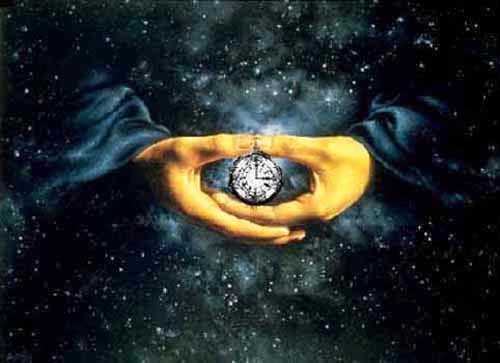Hello, Everyone! I wrote an additional piece to my "Coming to the Faith" article just a couple of hours ago and would like to share it with you. If any of you are philosophy or linguistics majors, I would definitely appreciate a response. The following paragraphs seek to name God given our aforesaid knowledge of His infinite and necessary existence by taking a logical and linguistic approach to defining God. Thank you very much and enjoy.
The Catholic Church's teaching on the Divine Name, as quoted from Exodus 3:14:
The revelation of the ineffable name "I AM WHO AM" contains then the truth that God alone IS. The Greek Septuagint translation of the Hebrew Scriptures, and following it in the Church's tradition, understood the divine name in this sense: God is the fullness of Being and of every perfection, without origin and without end. All creatures receive all that they are and have from him; but he alone is his very being, and he is of himself everything that he is. (Paragraph 213, Catechism of the Catholic Church)
We will, following from the Church's authoritative teachings on the matter, attempt to construct a philosophical and a linguistic account of God's ineffable name by employing arguments for expressing the indeterminate being and pure actuality that God is. Let us begin with the following propositions: "Kate is six feet tall," "my sofa is brown," "my teacher is a woman," and "Alex is." All of these propositions include the copula "is" that binds together the subject and the predicate, and these propositions also express different modes or acts of existence. The first two propositions express the subject's attributed modes of existence whereas the last proposition expresses the subject's substantial existence, so that even in the last proposition there is an implied predication with regard to the subject's contingent existence. Yet these modes of expression all express restricted acts of existence that fail to accurately resemble the existence that God is. We also know from the [previous article] that God does not have existence as one of His attributes as do the subjects in the aforementioned propositions. God simply is His own existence, and if we are going to attempt to assign a name to God, we only have substantial existence and accidental existence as the only two options for extrapolating a controlled definition for God.
The copula, moreover, appears to bind the subject and the predicate together to express varying acts of existence even though the copula is, in and of itself, without an initial subject-predicate determination, which the infinitive form of the verb expresses as unbounded by a particular subject or tense, "
to be." The infinitive expresses indeterminately whatever modes of existence the subject and the predicate restrict upon it. Otherwise the infinitive would never need to be restricted to express this act of existence as opposed to that act of existence if it already expressed its own unique determination. Moreover, the subject-predicate combination restricts the infinitive to express a finite mode of being. The three elements in a proposition therefore express a restricted mode of existence.
In [a separate article] we have demonstrated for the contingent existence of the cosmos. Contingent beings, however, take the place of the subject and the predicate in our everyday language. Therefore, linguistically speaking, existence is not necessarily to be expressed initially from the subject and the predicate, but rather the subject and the predicate find their particular existence expressed in and through the infinitive in its initial and indeterminate existence, "to be."
Some subject-predicate combinations, however, only express existence conditionally like the following categorical proposition: "all unicorns are one-horned." The categorical proposition, unlike the three propositions with which we started, can only conditionally express the existence of a contingent being in determinate matter. The proposition "all unicorns are one-horned" does indeed express an affirmative proposition as to a unicorn's proper qualities, so the statement does grant unicorns a particular mode of being but only in a qualified way since unicorns do not exist. The copula therefore does not always grant expressions of complete existence to everything that could possibly exist (e.g. unicorns, sofas, beds, and vampires) even though expressions of a contingent being's existence would not be possible without it.
Therefore with regard to God, who is His own unrestricted and infinite existence, there must belong an extraordinary predication distinct from the forms of predication used for contingent beings. To God there must belong a predication expressing Him as the binding element in a subject-predicate determination. The propositions "God is the One who is 'to be,'" "God is He that is," and "God is" would best communicate His unique class of unrestricted and infinite existence as He exists through His proper essence. This, however, is not like the last of the three aforementioned propositions, "Alex is," since in this proposition it is already implied that the subject's existence is attributed to himself only contingently. The expression "God is," on the other hand, seeks to attach the predicate to God not as to one of His attributes but as to His proper essence. Finally, St. Thomas Aquinas, in the eleventh article of the thirteenth question of the first part of the first part of the Summa Theologica, quotes from St. John of Damascus' Exposition of the Orthodox Faith so as to write that God's name denominates an "infinite ocean of substance."
From my previous article: Aquinas finally concludes by saying the cause of being, bequeathing existence to all existent things as the sheer act of '
to be' itself, in all of its amplitude, existing and subsisting, imperfectly expresses who God is. This is what we all come to know as God.






